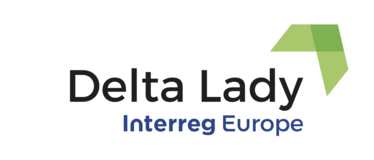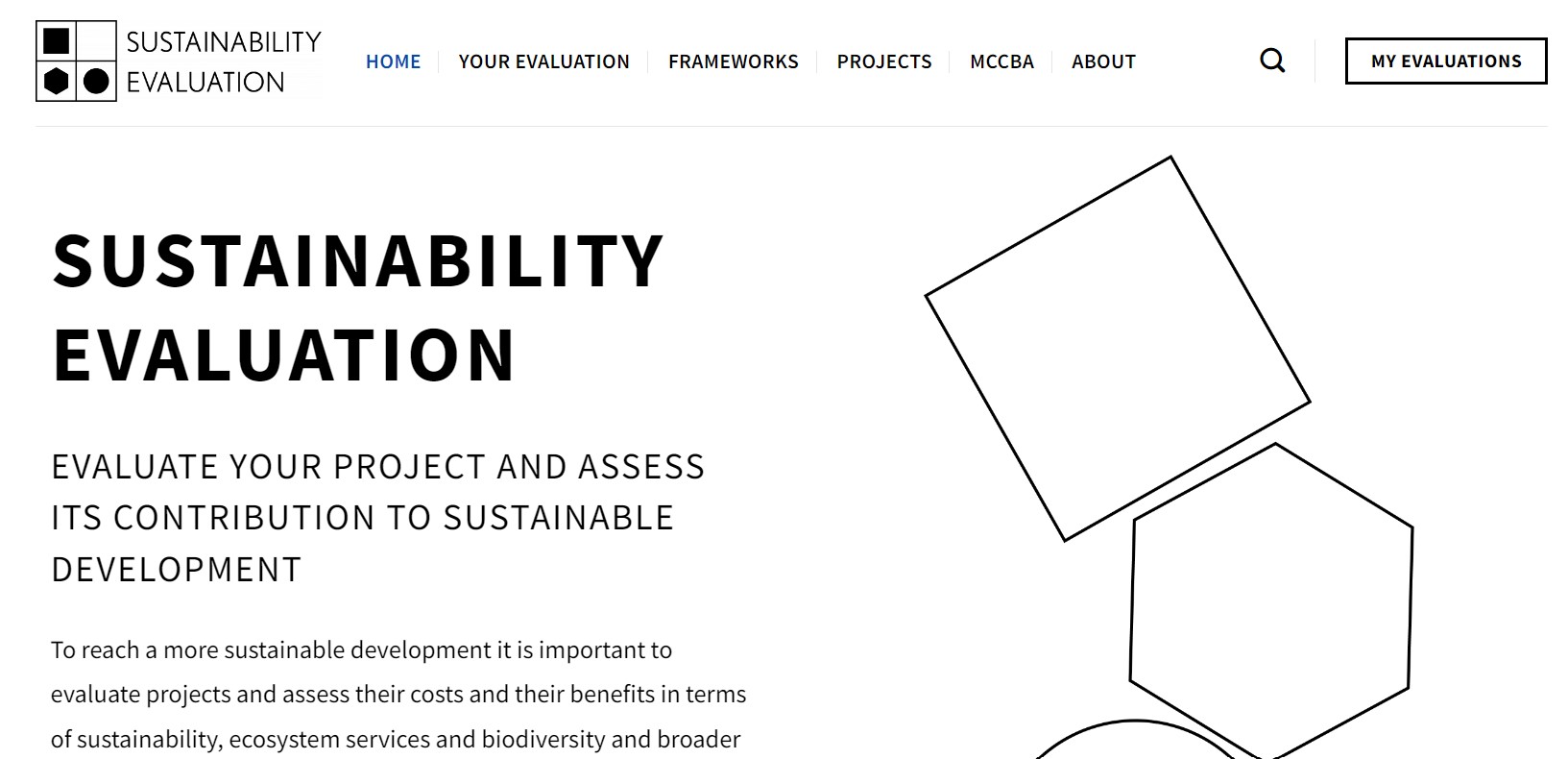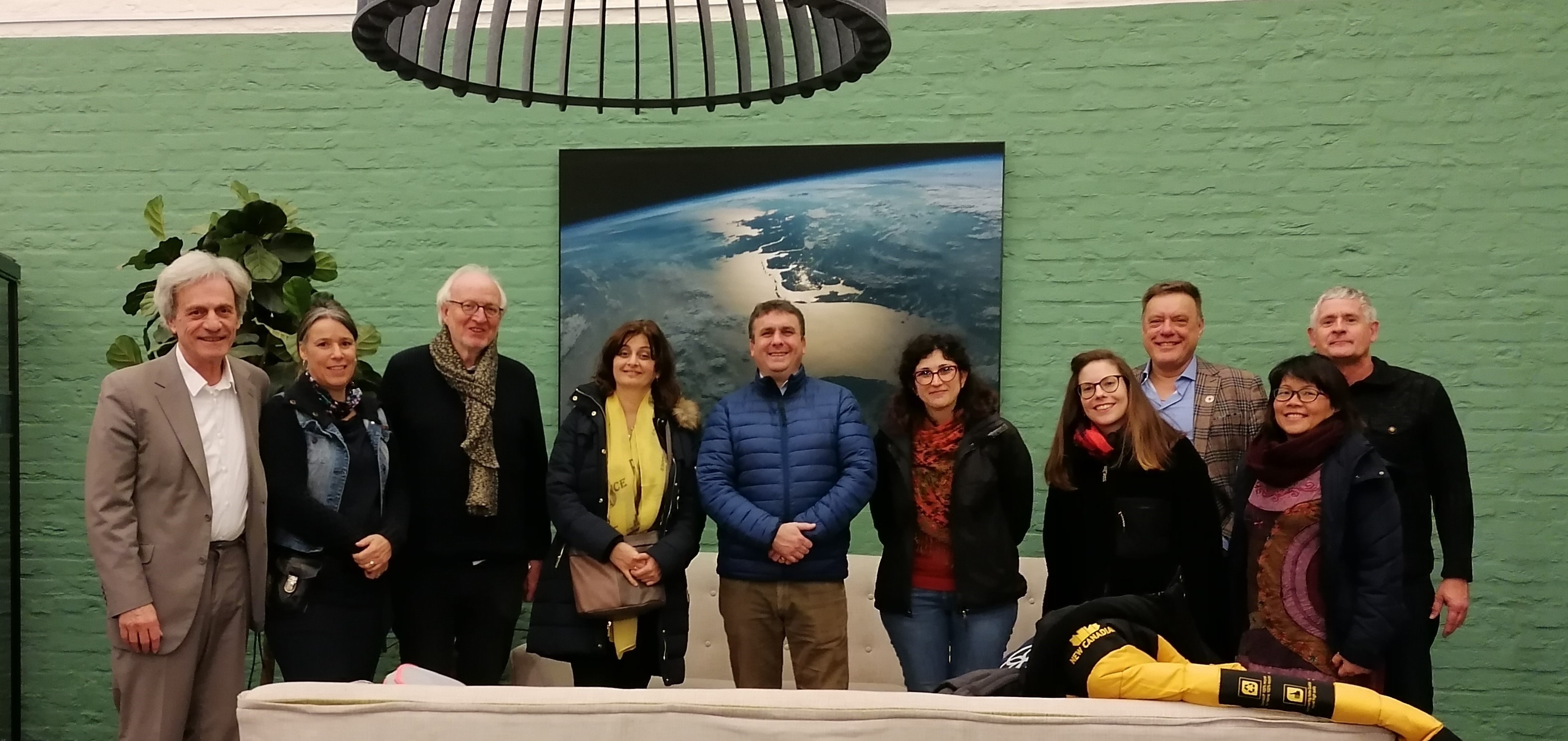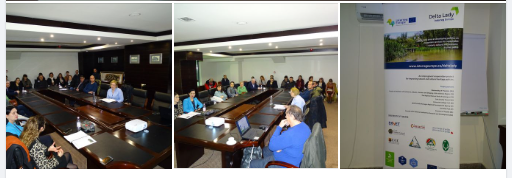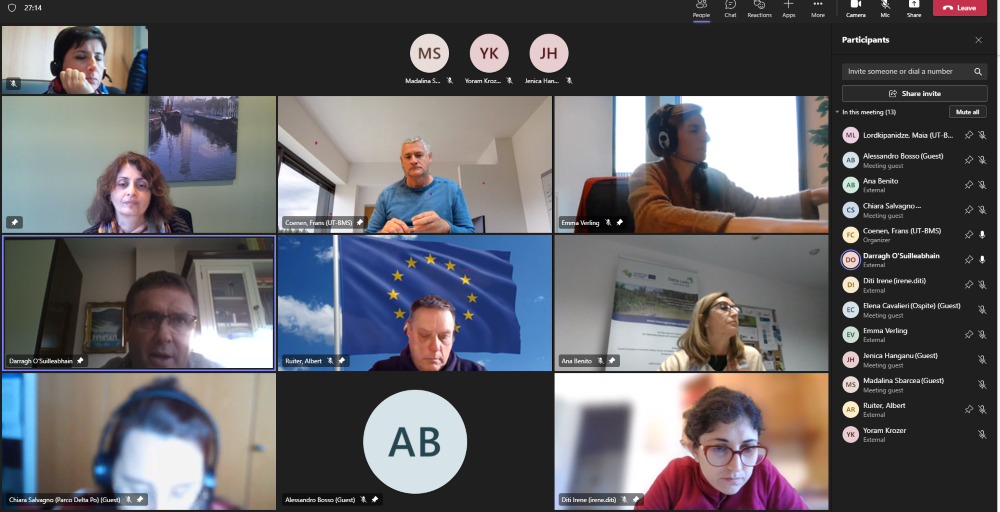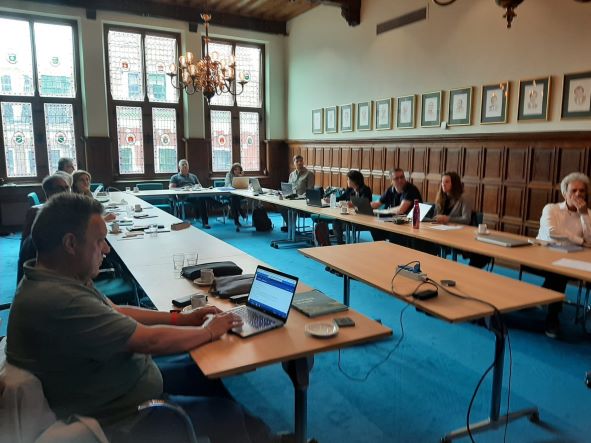The 4th RSG meeting of Po Delta Park and ART-ER took place on the 28th of July 2020. This fourth RSG meeting was postponed to the fifth semester due to the Covid-19 lockdown in Italy from March 2020 to June 2020. According to restrictions enacted during Covid-19 emergency, the meeting took place in digital form using Google Meet platform.
17 participants attended the meeting: 2 representatives of ART-ER; representatives of 4 local public institutions (3 Municipalities and 1 Union of Municipalities); 2 representatives from University of Ferrara as technical external assistance of the partner ART-ER and 5 representatives of Po Delta Park (Director and 4 technicians), the biggest municipality was absent.
This focus of the meeting was to discuss how to implement ecosystem services into the policy instrument, Territorial Plan of the Po Delta Park. Besides, the meeting was an opportunity for presenting the first results of the survey to stakeholders, to assess the values of ES using Willingness To Pay (WTP) approach.
The first results of the citizens' survey on ecosystem services value in Po Delta and WTP approach were presented by University of Ferrara followed by a discussion with municipalities on integration of ecosystem services in the policy instrument. Po Delta Park presented also the main outcomes of meetings with municipalities involved in the Park area, focused on main critical issues in the actual policy instrument. The last part of the meeting was dedicated to the interventions of municipalities on sharing their experiences regarding ES integration in their planning process.
ART-ER presented possible ways of integration of ES in local policy instrument according to regional laws and strategies. Moreover, ART-ER presented an example of ecosystem services mapping and assessment in China (from literature review).
The attendants were encouraged to identify the links between ecosystem services and areas of application in the territorial planning process.
Municipalities are developing/have to develop their local policy instrument (Piano Urbanistico Generale - PUG) that must fulfill the Po Delta Park Territorial Plan regulation, so participation in the development of Po Delta Park policy instrument is crucial.
Particular attention has been dedicated to the target of questionnaires on ES to be collected. The target defined during the previous RSG meeting was 500 but actually, also due to Covid-19 emergency, that target has not been reached yet. Partners agreed on the importance of collecting feedback both via web and through paper questionnaires. Also scholars could be a relevant interested party.
Another topic discussed during the meeting was the assessment of ES in order to integrate their values in policy implementation related to the municipalities urban planning. This focus is really important for municipalities because a recent regional regulation established this objective, but no standardized methods have been defined.
Some participants gave a contribution on integration of ES in the planning process. In particular the experience of Cervia municipality was inspiring for the development of the future tools in the action plan. Participants were asked to send additional comments and feedback in the next weeks.
Municipalities will have a crucial role in the future development of action plan for the improvement of policy instrument, especially now, because they start to develop their local policy instrument that has to be coherent with the Po Delta Park Territorial Plan. Moreover, we ask again for help in the distribution of questionnaires to local citizens to reach the target of 500 filled ones.

The first conclusion is that Municipalities have to put effort in the submission and collection of questionnaires in order to reach the target. The recommendations of Municipalities for Po Delta Park and ART-ER are to develop ES maps and matrix, because they could be useful tools aimed at integrating ES in spatial planning and at supporting coherence and integration of Po Delta Park Territorial Plan and urban plans of Municipalities.
ART-ER left to local administration some open questions about the integration of ES in the local planning process. The stakeholders have to send to project partners feedbacks that will be useful for action plan development and planning of future RSG meeting in Autumn 2020.
The next meeting will take place at the end of Semester 2020. We are thinking about the involvement of different groups of local stakeholders (e.g. fisherman associations, local recreational association, etc.)
